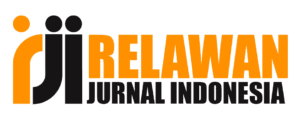The Impact of Digital Governance on Public Service Efficiency: A Cross-Country Analysis
Abstract
The increasing adoption of digital governance has significantly transformed public service delivery, aiming to improve efficiency, transparency, and citizen involvement. This study explores the impact of digital governance on public service efficiency, focusing on a cross-country comparison between industrialized and developing nations. The primary goal is to understand how digital governance influences service delivery in various contexts and to identify factors that contribute to its success. Using a mixed-methods approach, the study combines quantitative analysis of digital governance adoption and public service efficiency with qualitative insights from interviews with government officials and experts. The results show that digital governance enhances efficiency in countries with advanced digital infrastructure and institutional support, reducing processing times, costs, and improving citizen satisfaction. However, in developing countries, benefits were limited due to challenges such as poor infrastructure, lack of training, and political instability. The study emphasizes the importance of infrastructure, political will, legal frameworks, and digital literacy in determining the effectiveness of digital governance. The novelty of this research lies in its cross-country approach, offering new insights into optimizing digital governance strategies across different national contexts. Recommendations for policymakers include enhancing infrastructure, fostering political commitment, and improving digital literacy to maximize the potential of digital governance for better public service delivery.
References
Alahakoon, M. U. I., & Jehan, S. N. (2020). Efficiency of Public Service Delivery—A Post-ICT Deployment Analysis. Economies, 8(4). https://doi.org/10.3390/ECONOMIES8040097
Ally, A. M. (2024). Legal and regulatory framework for mobile banking in Tanzania. International Journal of Law and Management, 66(1). https://doi.org/10.1108/IJLMA-12-2022-0268
Amiraslani, F. (2021). Rising to the top ten transformative projects in Asia and the Pacific: A stakeholder analysis of the community-based carbon sequestration project in Eastern Iran. Project Leadership and Society, 2. https://doi.org/10.1016/j.plas.2021.100030
Andrade, C. (2020). The Limitations of Online Surveys. Indian Journal of Psychological Medicine, 42(6). https://doi.org/10.1177/0253717620957496
Ang, K. C. S., Afzal, F., & Crawford, L. H. (2021). Transitioning from passive to active learning: Preparing future project leaders. Project Leadership and Society, 2. https://doi.org/10.1016/j.plas.2021.100016
Arantes, V. A., Dicko, S., & Soares, R. O. (2024). Firms’ political connections and performance in Brazil and Canada: an analysis of the effect of country institutional factors. Journal of Management and Governance, 28(1). https://doi.org/10.1007/s10997-022-09666-1
Aritonang, D. M. (2017). The Impact of E-Government System on Public Service Quality in Indonesia. European Scientific Journal, ESJ, 13(35), 99. https://doi.org/10.19044/esj.2017.v13n35p99
Atobishi, T., Moh’d Abu Bakir, S., & Nosratabadi, S. (2024). How Do Digital Capabilities Affect Organizational Performance in the Public Sector? The Mediating Role of the Organizational Agility. Administrative Sciences, 14(2). https://doi.org/10.3390/admsci14020037
Aydınlar, A., Mavi, A., Kütükçü, E., Kırımlı, E. E., Alış, D., Akın, A., & Altıntaş, L. (2024). Awareness and level of digital literacy among students receiving health-based education. BMC Medical Education, 24(1). https://doi.org/10.1186/s12909-024-05025-w
Bekele, M., Sassi, M., Jemal, K., & Ahmed, B. (2024). Human capital development and economic sustainability linkage in Sub-Saharan African countries: Novel evidence from augmented mean group approach. Heliyon, 10(2). https://doi.org/10.1016/j.heliyon.2024.e24323
Bekkers, R., Raiteri, E., Martinelli, A., & Tur, E. M. (2020). Landscape Study of Potentially Essential Patents Disclosed to ETSI. https://doi.org/10.2760/313626
Booyens, I., Hoogendoorn, G., Langerman, K., & Rivett-Carnac, K. (2024). Path creation for an electricity transition in South African tourism. Tourism Geographies, 26(2). https://doi.org/10.1080/14616688.2023.2274836
Chenneville, T., & Schwartz-Mette, R. (2020). Ethical considerations for psychologists in the time of COVID-19. American Psychologist, 75(5). https://doi.org/10.1037/amp0000661
Corominas, J., van Westen, C., Frattini, P., Cascini, L., Malet, J. P., Fotopoulou, S., Catani, F., Van Den Eeckhaut, M., Mavrouli, O., Agliardi, F., Pitilakis, K., Winter, M. G., Pastor, M., Ferlisi, S., Tofani, V., Hervás, J., & Smith, J. T. (2014). Recommendations for the quantitative analysis of landslide risk. Bulletin of Engineering Geology and the Environment, 73(2). https://doi.org/10.1007/s10064-013-0538-8
Cortés-Cediel, M. E., Segura-Tinoco, A., Cantador, I., & Rodríguez Bolívar, M. P. (2023). Trends and challenges of e-government chatbots: Advances in exploring open government data and citizen participation content. Government Information Quarterly, 40(4). https://doi.org/10.1016/j.giq.2023.101877
Das, R. (2024). Contexts and dimensions of algorithm literacies: Parents’ algorithm literacies amidst the datafication of parenthood. Communication Review, 27(1). https://doi.org/10.1080/10714421.2023.2247825
Didin, D., Akib, H., Haedar, A. W., & Yandra, A. (2024). The Role of E-Government in Public Services: A Bibliometric Analysis. Journal of Contemporary Governance and Public Policy, 5(2), 111–134. https://doi.org/10.46507/jcgpp.v5i2.466
Elena, V., Prakash, S., Dixit, S., Nangia, R., Bhardwaj, K., & Shruti, C. H. M. (2024). A Comparative Study of Digital City Development Using the Data-Driven Smart City Index. BIO Web of Conferences, 86. https://doi.org/10.1051/bioconf/20248601080
Frinaldi, A., T Rezeki, A. P., & Saputra, B. (2024). Digital Transformation of Government Administration: Analysis of Efficiency, Transparency, and Challenges in Indonesia. AAPA-EROPA-AGPA-IAPA International Conference 2024. https://doi.org/10.30589/proceedings.2024.1096
Hashim, H. (2024). E-government impact on developing smart cities initiative in Saudi Arabia: Opportunities & challenges. Alexandria Engineering Journal, 96, 124–131. https://doi.org/10.1016/j.aej.2024.04.008
He, J., Ling, J., & Hou, R. (2024). Construction and Confirmation of Digital Literacy Assessment Framework for Leading Cadres. Applied Mathematics and Nonlinear Sciences, 9(1). https://doi.org/10.2478/amns.2023.2.01700
Hwang, J., & Akdede, S. H. (2011). The influence of governance on public sector efficiency: A cross-country analysis. Social Science Journal, 48(4), 735–738. https://doi.org/10.1016/j.soscij.2011.04.002
Indar, I. N., Razi, D. F., Atmansyah, L., Yani, A. A., & Ismail, N. (2024). Digital Transformation of Public Services: An Analysis of the Effectiveness of Online Services at the Local Government Level. Journal of Digital Sociohumanities, 1(2), 92–101. https://doi.org/10.25077/jds.1.2.92-101.2024
Joodaki, K., Nedjat, S., Dastjerdi, M. V., & Larijani, B. (2020). Ethical considerations and challenges of sex education for adolescents in Iran: A qualitative study. Journal of Medical Ethics and History of Medicine, 13. https://doi.org/10.18502/jmehm.v13i2.2664
Junaidi, A., Basrowi, Sabtohadi, J., Wibowo, A. M., Wibowo, S. S., Asgar, A., Pramono, E. P., & Yenti, E. (2024). The role of public administration and social media educational socialization in influencing public satisfaction on population services: The mediating role of population literacy awareness. International Journal of Data and Network Science, 8(1). https://doi.org/10.5267/j.ijdns.2023.9.019
Kabata, V. (2024). An assessment of the legal and regulatory framework supporting the implementation of the National Integrated Identity Management System (NIIMS) in Kenya. Data and Policy, 6. https://doi.org/10.1017/dap.2023.36
Kolzow, D. R., Smith, C. C. C., Serrat, O., Dilie, H. M., Zeeshan, S., Ng, S. I., Ho, J. A., Jantan, A. H., Massey, J., Sulak, T., Sriram, R., Dennis, R. S., Bocarnea, M., Hai, T. N., Van, Q. N., Herbert, S. L., So-Jung Kim, Kyoung-Seok Kim, Y.-G. C., Guillaume, Dr. O., Honeycutt, Dr. A., … Ingram, O. C. Jr. (2021). Unit 5 Theories of Leadership. International Journal of Organizational Leadership, 1(1).
Korenyakina, N., Vasilenko, M., Kuzina, E., Tagiltseva, J., Drozdov, N., Kudryavtseva, V., Parkhomenko, R., & Rakhaev, V. (2022). Information integration efficiency in ports and port stations transport service. Transportation Research Procedia, 63. https://doi.org/10.1016/j.trpro.2022.06.317
Krasnykov, Y., Ninyuk, I., Storozhenko, L., Marukhlenko, O., & Kruhlov, V. (2024). Impact of digital public services on governance efficiency. Telos: Revista de Estudios Interdisciplinarios En Ciencias Sociales, 26(1), 35–51. https://doi.org/10.36390/telos261.04
Lazor, O., Lazor, O., Yunyk, I., Zubar, I., Dzeveliuk, M., & Dzeveliuk, A. (2024). The impact of e-governance on shortening the public service delivery terms. Telos: Revista de Estudios Interdisciplinarios En Ciencias Sociales, 26(3), 1131–1145. https://doi.org/10.36390/telos263.21
Li, B., & Liu, Y. (2022). A Study on The Impact of Digital Transformation of Government Governance on The Efficiency of Public Services. Frontiers in Business, Economics and Management, 5(2). https://doi.org/10.54097/fbem.v5i2.1639
Magazzino, C., Alola, A. A., & Schneider, N. (2021). The trilemma of innovation, logistics performance, and environmental quality in 25 topmost logistics countries: A quantile regression evidence. Journal of Cleaner Production, 322. https://doi.org/10.1016/j.jclepro.2021.129050
Mergel, I. (2012). OpenCollaboration in Public Sector: The case of social codign on Github. Government Information Quarterly, 1(1).
Morgan, G. A., & Harmon, R. J. (2001). Data collection techniques. Journal of the American Academy of Child and Adolescent Psychiatry, 40(8). https://doi.org/10.1097/00004583-200108000-00020
Naik, S., & Tapas, P. (2023). Role of citizens’ engagement in sustaining citizens’ participation in governance. International Journal of Business and Globalisation, 33(1–2). https://doi.org/10.1504/ijbg.2023.128322
Nevstad, K., Madsen, T. K., Eskerod, P., Aarseth, W. K., Karlsen, A. S. T., & Andersen, B. (2021). Linking partnering success factors to project performance - Findings from two nation-wide surveys. Project Leadership and Society, 2. https://doi.org/10.1016/j.plas.2021.100009
Ninan, J., Clegg, S., Burdon, S., & Clay, J. (2021). Overt obstacles and covert causes: An exploratory study of poor performance in megaprojects. Project Leadership and Society, 2. https://doi.org/10.1016/j.plas.2021.100011
Riyaz Ansari, M., Rahim, K., Bhoje, R., & Bhosale, S. (2022). A STUDY ON RESEARCH DESIGN AND ITS TYPES. International Research Journal of Engineering and Technology (IRJET), 9(7).
Salmia, S. S. (2023). DEVELOPMENT OF QUALITY INSTRUMENTS AND DATA COLLECTION TECHNIQUES. Jurnal Pendidikan Dan Pengajaran Guru Sekolah Dasar (JPPGuseda), 6(1). https://doi.org/10.55215/jppguseda.v6i1.7527
Sugiyono, Prof. Dr. (2011). Metode Penelitian Kuantitatif Kualitatif dan R&D. In Alfabeta Bandung.
Tiika, B. J., Tang, Z., Azaare, J., Dagadu, J. C., & Otoo, S. N. A. (2024). Evaluating E-Government Development among Africa Union Member States: An Analysis of the Impact of E-Government on Public Administration and Governance in Ghana. Sustainability (Switzerland), 16(3). https://doi.org/10.3390/su16031333
Tobi, H., & Kampen, J. K. (2018). Research design: the methodology for interdisciplinary research framework. Quality and Quantity, 52(3). https://doi.org/10.1007/s11135-017-0513-8
Wei, X., Guo, H., Wang, X., Wang, X., & Qiu, M. (2022). Reliable Data Collection Techniques in Underwater Wireless Sensor Networks: A Survey. In IEEE Communications Surveys and Tutorials (Vol. 24, Issue 1). https://doi.org/10.1109/COMST.2021.3134955
Xhafka, E., Sinoimeri, D., & Teta, J. (2024). Evaluating the Impact of E-Governance on Public Service Improvement in Albania: A Quantitative Analysis. Sustainability (Switzerland), 16(24). https://doi.org/10.3390/su162410896
Yap, C. S., Ahmad, R., Newaz, F. T., & Mason, C. (2021). Continuous Use and Extended Use of E-Government Portals in Malaysia. International Journal of Public Administration, 44(15). https://doi.org/10.1080/01900692.2020.1759626
Yukhno, A. (2024). Digital Transformation: Exploring big data Governance in Public Administration. Public Organization Review, 24(1). https://doi.org/10.1007/s11115-022-00694-x
Zhemchugova, O., Levshina, V., & Levshin, L. (2022). Application of risk-based approach methods of various levels of complexity in the quality management system of a transport company. Transportation Research Procedia, 63, 1–12. https://doi.org/10.1016/j.trpro.2022.05.001
Zou, Q., Mao, Z., Yan, R., Liu, S., & Duan, Z. (2023). Vision and reality of e-government for governance improvement: Evidence from global cross-country panel data. Technological Forecasting and Social Change, 194. https://doi.org/10.1016/j.techfore.2023.122667
Copyright (c) 2025 Journal of Governance and Local Politics (JGLP)

This work is licensed under a Creative Commons Attribution-NonCommercial-NoDerivatives 4.0 International License.










